On Sundays everything is shut on Tonga's main island, but you'll find plenty to do on Pangaimotu Island, a 10-minute boat ride from Tongatapu.
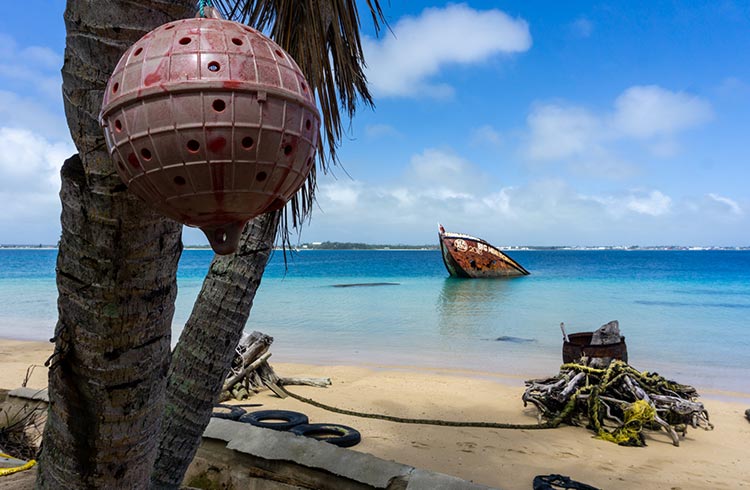 Photo © Chantae Reden
Photo © Chantae Reden
It’s Sunday morning, and my friend Hannah and I wake on Tongatapu, Tonga’s main island, to the sound of bells ringing and harmonious voices singing. Dressed in handmade formalwear, Tongans are gathering to worship Christ at a local church – the only place open today.
Sundays in Tonga: A day trip to Pangaimotu Island
Nuku’alofa, the capital of Tonga, has plenty of natural features, including blowholes, caves, natural bridges, and historic sites, and on any other day of the week, you’ll find Tongans busy in the market in search of fresh produce, while puppies and piglets scurry across the road to catch up with their mothers.
But, on Sundays, all activities come to a halt in the predominantly Christian Kingdom of Tonga. The Tongan government’s enforcement of a Sabbath Law means businesses close and residents spend the day worshipping, feasting with family, and resting.
In search of something to do, we head to Pangaimotu, an island surrounded by shipwrecks a short boat ride away, where there is plenty on offer. Because Pangaimotu has a resort on the island, it’s exempt from Sabbath Law, and is one of the few places open to visitors on Sundays.
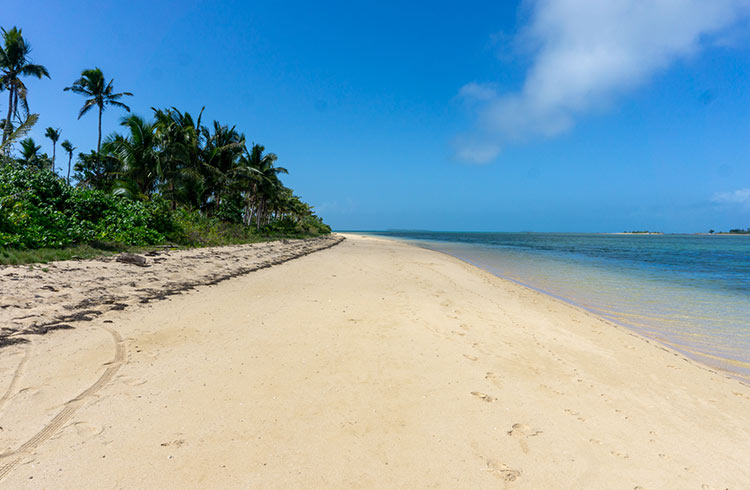
For US $20 we get the 10-minute boat ride from Nuku’alofa’s Faua Wharf and a meal at the island’s only restaurant.
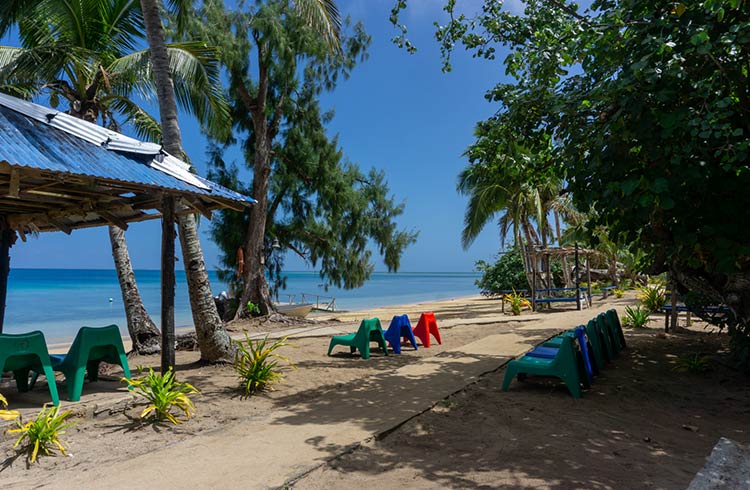
The shipwrecks of Pangaimotu Island: in search of sea creatures
Pangaimotu is best known for a shipwreck, 50 meters from the shore, with a hull that juts out from the ocean. We watch as a young man climbs to the top of the wreck, confirms that his friends are watching, yells, and cannonballs into the water. His friends let out a cheer. One by one, the daredevil’s friends dash up to the top of the wreck for their turn.
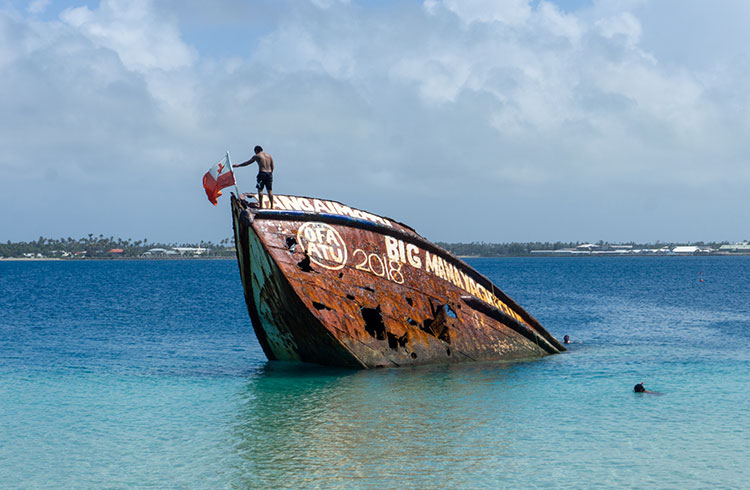
From Pangaimotu Island, strong swimmers can access a handful of other shipwrecks about a five-minute swim from shore that are great for snorkeling. The shipwrecks are the result of Cyclone Gita, a category 4 cyclone that hit Tonga in February 2018. I’m amazed and intimidated by the amount of destruction that a natural event can cause.
Since the reefs surrounding Pangaimotu Island are part of a marine reserve, fish populations thrive, and vibrant coral bommies speckle the sea floor.
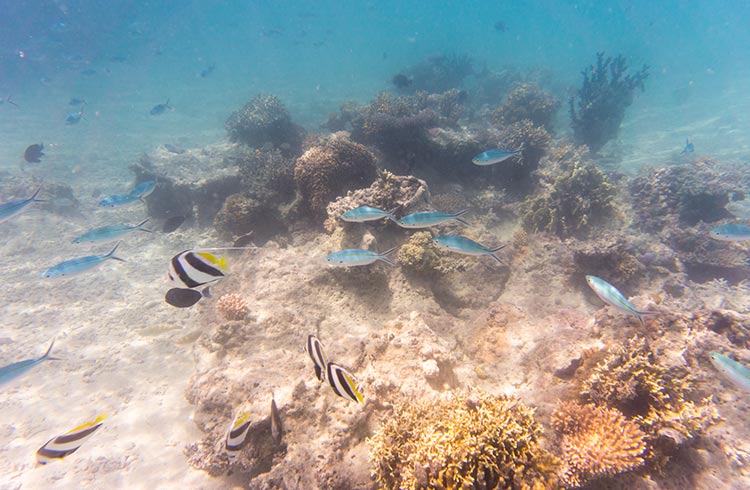
At the first wreck, I get goosebumps as the water changes from warm to cold. A school of fish hides under a ledge made of rotting wood, shielding themselves from larger predators nearby. Clams, starfish, and urchins wedge themselves into exposed crevices below the ship.
Between July and October, humpback whales swim in these waters.
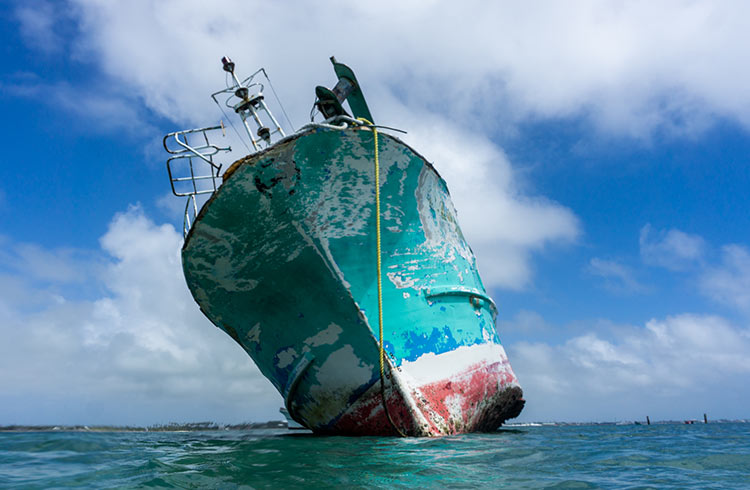
Pangaimotu Island: little island, little beaches
It only takes 20 minutes to walk around Pangaimotu Island — give it an extra 10 if you’re on island time. Collapsed structures and piles of wood are the only remnants of Cyclone Gita, and there is plenty of sandy beach to enjoy.
Home to one small resort and yacht club, it’s a peaceful place with no residents aside from the resort’s staff.
Away from the other travelers, we wrap ourselves in sarongs and walk barefoot along the shoreline. We sit and watch the tide retreat – leaving an outline of seaweed in its place while inland, pigs squeal and scamper between the palm trees.
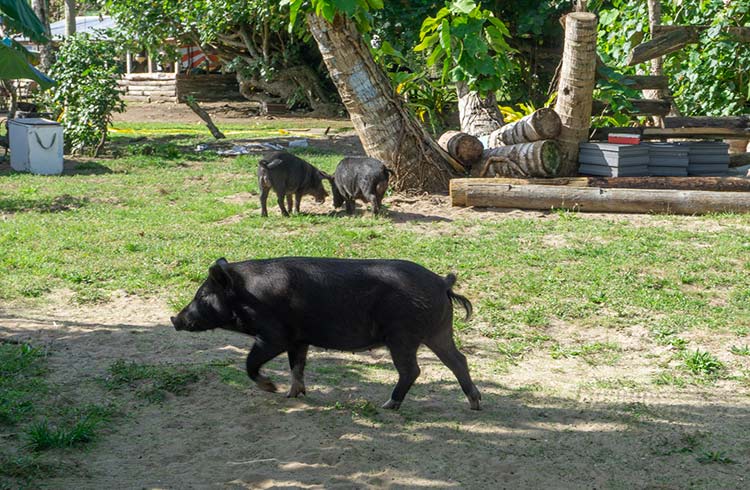
Just before sunset, we head back to Pangaimotu’s rickety wooden dock and pile back onto the boat to Nuku’alofa. The captain spots our snorkels and asks, “Did you see anything on your swim?”
“Just a few shipwrecks!” I smile.
It’s a conversation that lasts all the way back to Nuku’alofa, and the captain tells us that there are plenty more shipwrecks to explore around Tonga’s 170 islands. Something for another day perhaps.
Trip notes
How to get to Pangaimotu Island
Pangaimotu Island is 1.3mi (2km) from Faua Wharf in Nuku’alofa. From Monday to Saturday, boats leave to Pangaimotu at 11am and return at 4pm. On Sundays, boats leave every hour on the hour from 10am to 1pm and return every hour on the hour from 4pm to 6pm. However, these times are not always reliable so call and confirm the boat schedule before visiting.
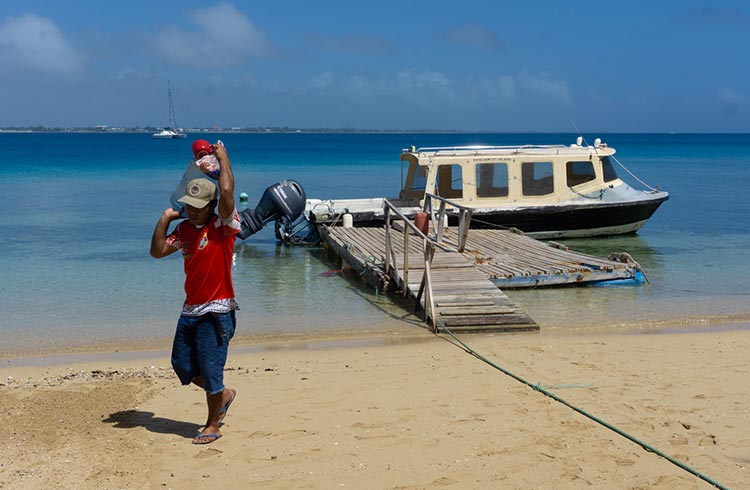
The best time to go to Tonga
Visit Tonga between May and November, outside of cyclone season.
Road tripping Tongatapu Island
The best way to explore Tongatapu Island is by car. You can see the island’s best sites in a day. Don’t miss: Mapu'a ‘a Vaea, blow holes that spray plumes of seawater into the air during large swells; Hufangalupe Archway, a natural bridge made from limestone; the massive stone Ha’amonga ‘a Maui Trilithon, one of the country’s most mysterious artifacts; and Ha’atafu Beach, an isolated stretch of sand with pumping waves.
Related articles
Simple and flexible travel insurance
You can buy at home or while traveling, and claim online from anywhere in the world. With 150+ adventure activities covered and 24/7 emergency assistance.
Get a quote
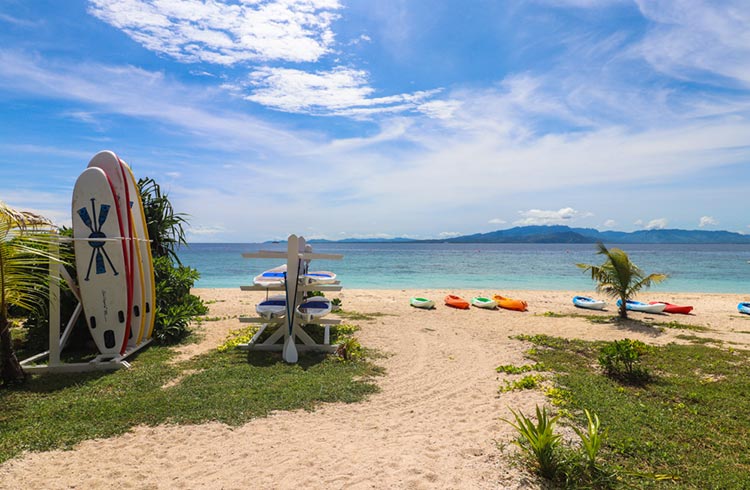
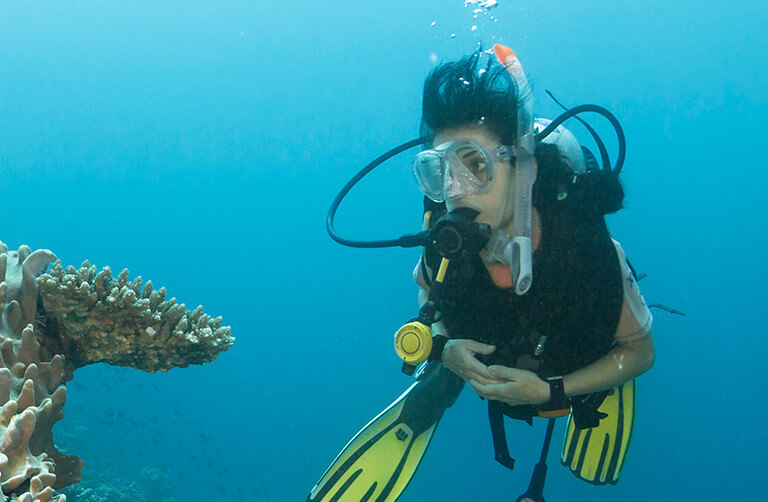
No Comments